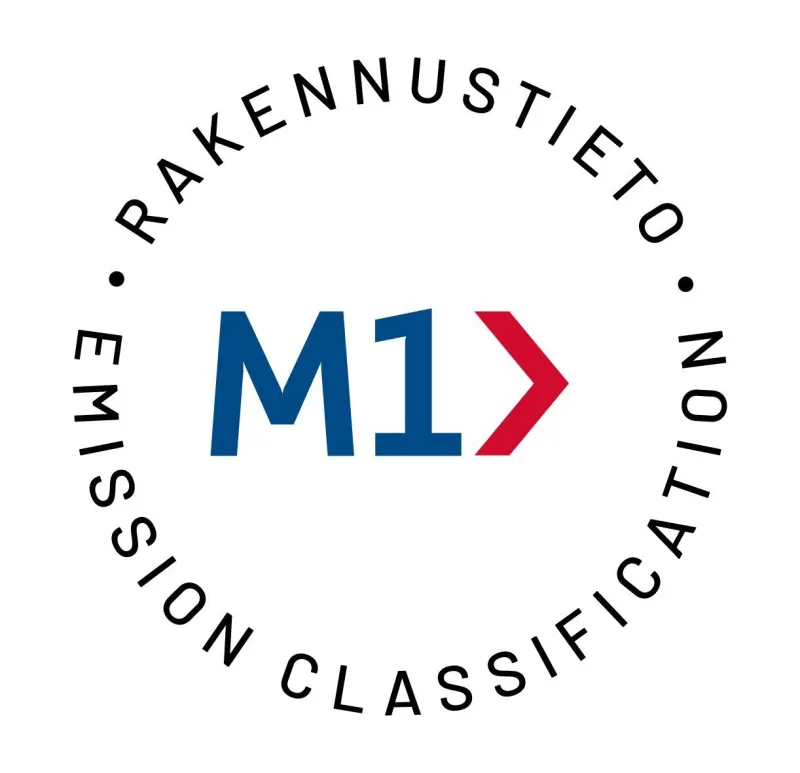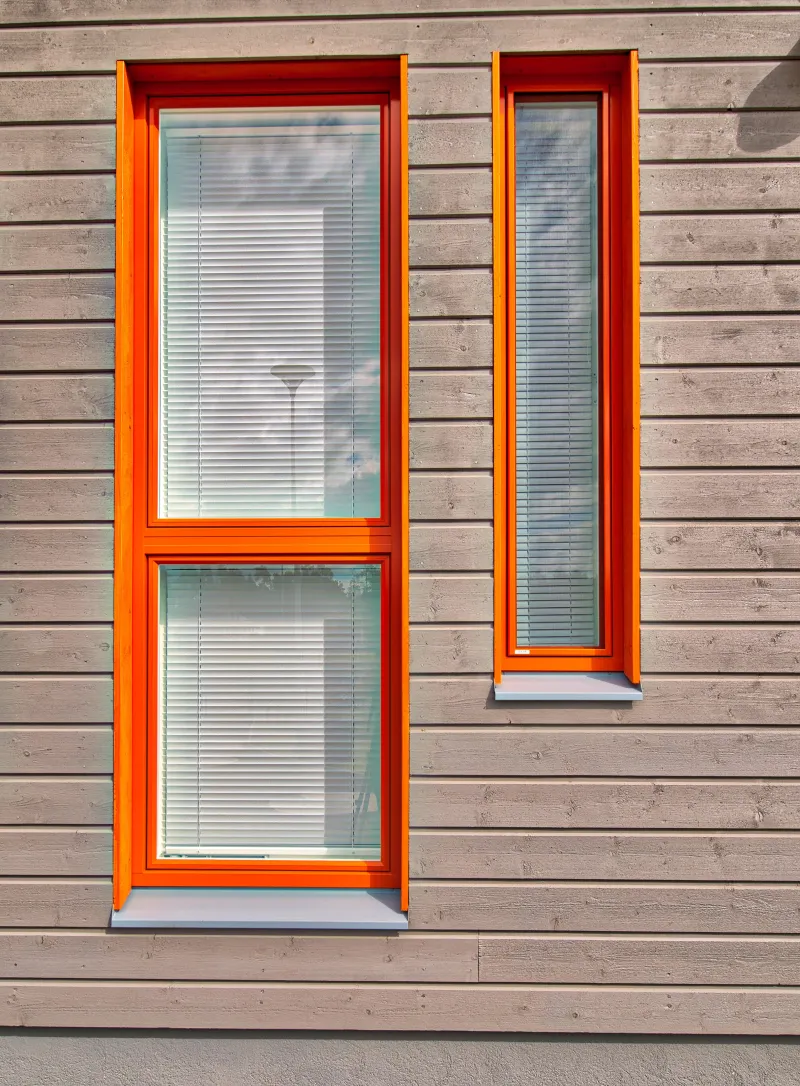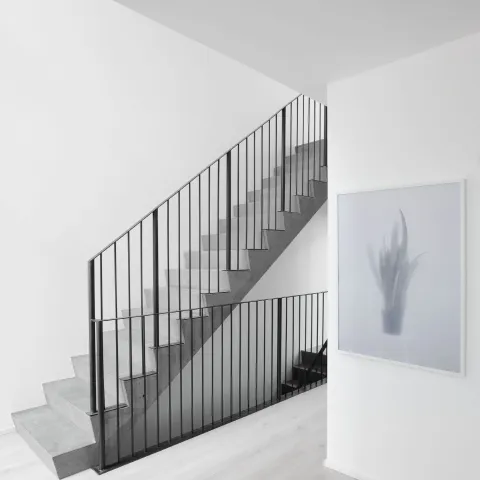M1 as a tool for sustainable, healthy indoor environments

Interior paints can be awarded with international ecolabels (e.g. Nordic Swan, EU Ecolabel), national allergy & asthma labels and classifications measuring compounds emitted into the air. Certified products meet preset requirements regarding their environmental impact throughout their life-cycle, from the extraction of raw material through to production, use, and disposal. Alongside environmental requirements, the criteria also include requirements regarding product properties that ensure quality and durability.
Low emission paints are better for health and the environment
One of the most widely used classifications for building material emissions is M1. Developed and published by The Finnish Society of Indoor Air Quality and Climate (Sisäilmayhdistys) in 1996, the M1 classification sets limit values for the emission of total volatile organic compounds (TVOC), single volatile organic compound (VOC) ≤ EU-LCI, formaldehyde and ammonia and CMR-compounds. Also the acceptability of the odour associated with the material is assessed.
Volatile organic compound (VOC) emissions contribute to ozone in the lower atmosphere and in large concentrations adversely affect people, animals, and plants. While ozone in the stratosphere helps protect our planet from harmful UV rays from the sun, ground-level ozone is actually hazardous and can cause smog, respiratory problems and crop loss. Low VOC content in building materials is thus key to interior air quality and the wellbeing of building users as well as the environment.
Compatible with environmental certificates
Sustainable construction and green building schemes – such as LEED, BREEAM, WELL, Miljöbyggnad and RTS – are increasingly popular, as developers set their sights on carbon neutrality and consumer demands for ecological, healthy housing and work environments increase. Environmental certificates stress interior air quality, so VOC content and emission levels of paint products should be minimal in order to meet the criteria.
There are several versions of environmental certification systems with country-specific differences as well as different requirements for different buildings or individual site-specific projects. This is why it is not possible to provide universally applicable guidelines for suitable products – but if you look for products with the M1 emission classification and low VOC content you will definitely be on the right track.
Criteria focus on emissions and odour
The M1 certification is granted by the Finnish Building Information Foundation to products that have been examined by an accredited third-party testing laboratory and have undergone an organoleptic assessment. Classified materials have to fulfill the following criteria 4 weeks after application / installation:
|
Parameter |
M1 |
M2 |
|
The emission of total volatile organic compounds |
< 0,2 |
< 0,4 |
|
Emission of a single volatile organic compound (VOC) [µg/m3] |
≤ EU-LCI |
≤ EU-LCI |
|
Formaldehyde emission [mg/ m2h] |
< 0,05 |
< 0,125 |
|
Ammonium emission [mg/ m2h] |
< 0,03 |
< 0,06 |
|
The emission of CMR-compounds belonging to category 1A or 1B in Annex VI to Regulation (EC) No 1272/2008 [mg/m3] 1 |
< 0,001 |
< 0,001 |
|
Odour 2 |
not odorous |
not odorous |
1) does not include formaldehyde
2) odour acceptance ≥ 0,0
(Source: Click here)
Over 350 certified products
Tikkurila has significantly reduced the VOC emissions from its products by shifting from solvent-borne products to water-borne products. Tikkurila has 350 products that have been awarded an international or national ecolabel, allergy and asthma label or M1 classification ensuring low emissions.





